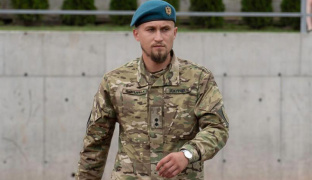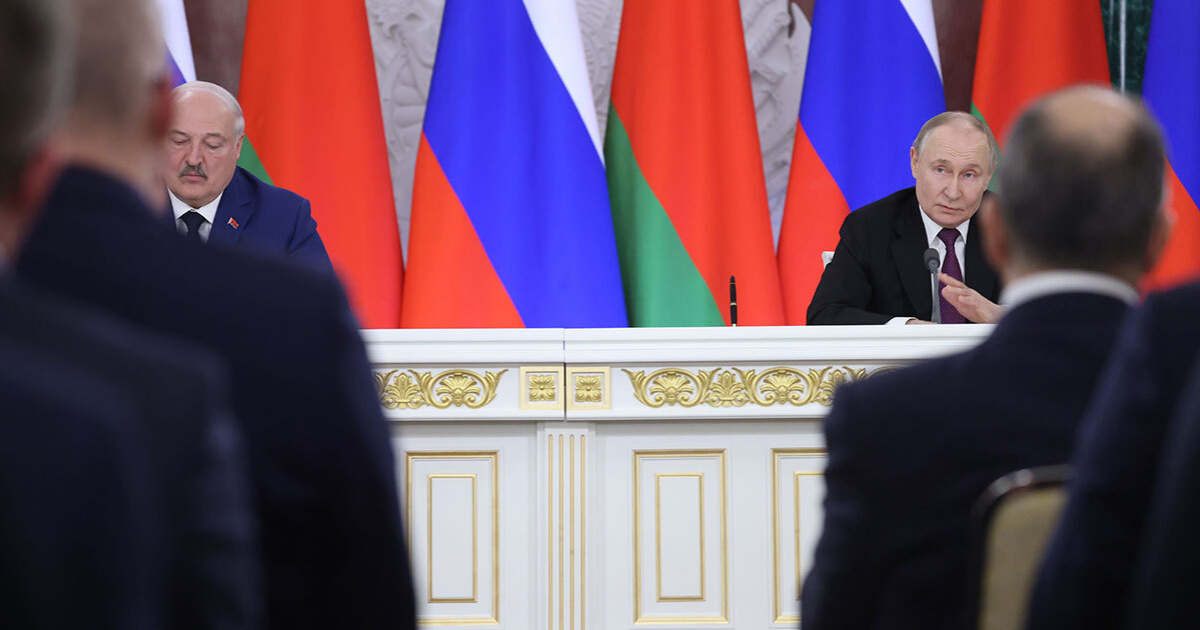
Despite the Ukrainian banking system not operating in temporarily occupied territories, Kyiv continues to disburse payments to pensioners residing there. Moreover, there are mechanisms of questionable legality for cashing Ukrainian pensions.
Several pensioners living in the occupied territories have told OstroV that there are no issues with disbursing pensions and other social payments. The main problem lies in receiving these funds in cash.
"The money is credited to the account of those who managed to get a Ukrainian bank card. It is easy to check in your personal account. Some people set it up themselves, while others get help from their children, even from areas under Ukrainian control. There are ways. People have adapted. But they don't accept Ukrainian bank cards here; you can't pay in stores, and you can't withdraw cash from them. It seems like a critical situation. But even here, people have found a solution", - said pensioner Mariia K., who resides in Mariupol.
It's worth mentioning that, for many pensioners who, for various reasons, have remained living in the occupied areas, their Ukrainian pension is a means of survival. For example, Mariia stayed in the war-torn city of Mariupol to take care of her bedridden brother. She finds it difficult to witness the transformation of her hometown under the occupation, but she couldn't find any other option.
"Otherwise, he (her brother – ed.) would have simply died alone. He is non-transportable", - the woman emphasized.
For her, the local pension alone is not enough to make ends meet. The monthly payments amount to around 10,000 rubles (approximately 3,800 hryvnias). However, with the arrival of the occupiers, prices have increased at least twofold, and she hasn't been able to find any side hustle.
It's worth noting that in the occupied Mariupol, two types of pensions are essentially paid: local (from the so-called "DNR"), which is around 10,000 rubles, or russian, the process of which started not long ago. The russian pension is, of course, higher, but it requires obtaining a russian passport, as well as other documents confirming employment history.
"To receive a pension, you need a russian passport. No passport means no money. They talked about no compulsory passportization, though. Yeah, right. However, even with it, you won’t get that pension. Because providing the lost documents (which are also required) is impossible. As a result, instead of a pension, only a passport remains. That's how it is", - confirms Petro Andriushchenko, an advisor to the mayor of Mariupol.
According to OstroV, even with all these documents in hand, the process of obtaining a russian pension can take several months.
"People line up from the middle of the night to get a voucher for pension recalculation. There are shouts, fights, and whatnot. They only accept a few people a day, so the process is very slow", - said Iryna, a Mariupol resident, speaking to OstroV.
Recently, the leader of the "DNR", Denis Pushilin, boasted that more than 223,000 people had applied for a pension review. However, he didn't mention that as of January 2023, according to the estimates of the occupation authorities, more than 743,000 pensioners were registered in the "DNR". This means that only slightly over 30% of pensioners managed to submit an application. It's unknown how many of them are already receiving a russian pension. The collaborator also admitted that vouchers for pension recalculation need to be obtained several months in advance and promised to "speed up the procedure".
Mariia K. from Mariupol still hasn't applied for a russian pension due to a lack of time and the ability to stand in queues for days. She continues to receive Ukrainian payments that help her make ends meet.
"I have no issues with Ukraine due to the disbursing of the money. But cashing this money here is a quest. And I don’t know who profits from this. I don't want to support the occupiers, but I don't know of any alternatives", - says the pensioner.
Ukraine disburses but doesn't control the receipt
Despite russia's military aggression and active combat operations for residents living in settlements located in the occupation, the payment of pensions continues in full and in accordance with the provisions outlined in the Cabinet of Ministers of Ukraine Resolution No. 162 of February 26, 2022, "On the Features of Pension Payments and Delivery of Financial Aid during the Introduction of Martial Law". This was confirmed to OstroV by the Pension Fund of Ukraine.
"The terms for withdrawing funds from the current account in the bank are determined by the terms of the agreement between the pension recipient and the authorized bank", - explained the Pension Fund.
Furthermore, the Pension Fund emphasized that regulatory acts do not provide for authorized banks to transmit information to the Pension Fund about where pensioners receive their funds.
In other words, neither the Pension Fund nor the Ministry of Social Policy can control where Ukrainian pensions are being cashed. The Security Service of Ukraine also did not explain how control is exercised over how pensioners receive Ukrainian pensions in temporarily occupied territories. Instead, OstroV's request was redirected to the Ministry of Social Policy.
Serhiy Stepanovych, a pensioner from Donetsk, said that there were no problems with the disbursing of Ukrainian pensions before the full-scale russian invasion or after.
"Before (before February 24, 2022, - ed.), everything was simpler. You could easily come to the territory controlled by Ukraine, receive your pension, spend it there, and return. Now it's an ordeal. However, there are many of those who advertise and urge people to re-register their Ukrainian pension. There are intermediaries who take money for this, and people get some kind of increase. I don't want to be bothered with that, but many of my acquaintances receive the money somehow", - he told our publication.
OstroV attempted to determine how many pensioners residing in the occupation continue to receive Ukrainian pensions, but the Ministry of Social Policy stated that they do not possess such information.
"The Ministry of Social Policy does not have information on the number of Ukrainian pensioners living in temporarily occupied territories who continue to receive Ukrainian pensions", - the response to our publication's official request stated.
We were advised to seek this information from the Pension Fund, but even there, these data were not disclosed.
Not all pensioners residing in the occupation have obtained a bank card to receive pensions. Many received payments in cash through Ukrposhta (Ukraine's postal service) at their place of residence. Today, pensioners of this category cannot receive their Ukrainian pensions without traveling to the territory controlled by Ukraine.
According to the Chairman of the Board of the Pension Fund of Ukraine, Yevhen Kapinus, all due pension funds will be available to individuals when it becomes possible and safe. This will happen at the pensioner's discretion: either from an account opened by the Pension Fund at Oschadbank or through a Ukrposhta. To receive funds from an account, a pensioner will need to personally contact Oschadbank and enter into a banking service agreement.
Additionally, a pensioner can contact the Pension Fund to provide the details of their account at another bank (in case they wish to transfer the payment from Oschadbank to another bank) or to resume payments at a post office once its operation is restored, or to transfer payments to a different address of residence.
Pensioners of this category have also found a solution. Some travel to the territory controlled by Ukraine, reissue all necessary documents, receive pensions for past periods, exchange them for USD or EUR, and return to the occupation. This "pension tourism" was particularly popular when the checkpoint in the Zaporizhzhia oblast was in operation. Currently, the trip to the territory controlled by Ukraine and back is only possible through russia and EU countries, which takes a considerable amount of time (around two days) and money (at least USD 300). However, there are still those who utilize this method.
"One of our acquaintances recently traveled from Berdiansk to Kyiv. She combined the pleasant with the useful: visited her family, received medical treatment, re-registered her pension, and came back. She spent the money she received over the year on her children and leisure, 'covered' the expenses of the trip, and her pension will now be credited to a Privatbank bank card. In Berdiansk, she has already found a reliable intermediary who exchanges her pension for rubles at a good rate. She receives 5,000 rubles monthly. Such cases exist", - said Mariupol resident Iryna in a conversation with OstroV.
There is a way to receive a pension in the occupation
In the occupied territories, the only way to receive a Ukrainian pension is to use the services of numerous intermediaries.
The cashing scheme is quite simple: the pensioner transfers their pension online to the intermediary's Ukrainian bank account, and the intermediary, in turn, provides rubles in cash (at a special rate) or sends them to a russian account.
On social media, you can find dozens of advertisements offering assistance in cashing out Ukrainian pensions with an average commission of 10-20% of the amount. Some intermediaries offer a commission-free exchange, but in such cases, the exchange rate of the hryvnia to the ruble may not be the most favorable.
"I need the exact amount in hryvnias that you will be transferring and the bank account (Privatbank, Monobank, PUMB) to provide a commission-free card. I will specify the card number to which the hryvnia transfer should be made. After the transfer, please send me the receipt (payment details) and the number of your card, phone, and the recipient's name for the ruble transfer", - one of the intermediaries briefly described the scheme to OstroV.
Access to the bank's personal account is required for the transfer. If the account is not available, intermediaries offer to restore it for an additional fee.
We decided to investigate the "currency exchange" first-hand and found one of the intermediaries, presenting ourselves as a pensioner wishing to cash out a Ukrainian pension.
They told us that first, we needed to specify the exact amount of the transfer, as well as the bank from which the money would be sent and the bank where the transfer would be received in rubles. Additionally, they offered the option of a personal meeting to ensure there would be "no deception". In this case, cash withdrawal was possible.
"Then I will send you the card number to which you need to send the money. I will send you the account details, registered in your bank, so you will pay 0% commission for the transfer. After transferring the funds, send me a receipt as confirmation, the card number, and the recipient's full name. Then, within 15 minutes, I will send you rubles and provide any proof of the transfer (receipt, bank statement, any screenshot)", - they assured us.
Another intermediary named Mykhailo explained that he can do "everything": from cashing out a Ukrainian pension to re-registering it from scratch. Regarding the transfer of the pension to rubles, he stated that the money is sent to "reliable people, but you shouldn't worry about that".
"The main thing is that everything is transparent, we have our regular clients already. We can meet in person, I can restore access to the personal account of any bank, and I can give you rubles in cash", - he said.
Almost all intermediaries separately mention that they have cards from all Ukrainian and russian banks, so transfers will be commission-free. The exchange rate ranges from 1 hryvnia to 1.8 rubles to 1 hryvnia to 2.4 rubles.
The intermediaries are not willing to disclose whom exactly the hryvnias are transferred to. They only use phrases like "acquaintances" or "intermediaries".
We couldn't understand why all intermediaries only allowed 15 minutes for payment, simply referring to "security measures". In the end, we managed to get one of the intermediaries to explain that the card numbers for hryvnia transfers are constantly changing.
"Bank cards I work with are temporary, so please let me know when you're ready to make the transfer within 15 minutes. There are several people ready to accept hryvnias. I contact the person, they receive the money, and confirm it", - he said.
There is a category of intermediaries who only meet in person. Even if there's no personal bank account, they offer to handle everything independently, "turnkey" style.
After our conversation, intermediary Oleh called us several times and tried to persuade us to use his services, even offering "discounts". At some point, we decided to play along and expressed concerns about the legality of this agreement and possible future questions from Ukrainian law enforcement. It turned out that Oleh was prepared for such reactions and remained unfazed.
"There's nothing criminal or illegal about it. You transfer money to an ordinary person, my friend, living in Kharkiv, he converts this money into cryptocurrency and sends it to me. It's untraceable. Otherwise, we would have been shut down a long time ago, and I've been working for over a year. You've read the reviews in Viber from real people, haven't you? The card where you'll be transferring the money will change, so don't save it. It’s just as if you transferred money to your acquaintance, possibly paying off an old debt", - he reassured us.
Another complexity lies in the use of online apps from which you need to make transfers of Ukrainian pensions. Typically, entering a personal account requires a valid Ukrainian phone number, which doesn't work in the occupied territories. Therefore, intermediaries offer their services for restoring or creating an account, which costs from 1,000 rubles and upwards.
For those who want to save money, special instructions on how to do it themselves can be found in local chats. For example, you can access Oschadbank's application without making calls or receiving SMS. To do this, it is recommended to download the mobile application "Oschad 24/7".
"If you don't receive an SMS when entering/registering a phone number, go to the bank's website, click 'Feedback', choose 'Web call' option and press 'Continue without authorization' button", - the "instruction" says.
Afterward, the Oschadbank contact center operator will conduct full verification and be able to change the password delivery channel for 24 hours so you can complete the registration.
A similar approach can also be used with PrivatBank. To do this, it is recommended to open a chat with customer support on the bank's website and request to restore access to the account in the absence of mobile network. You will need to verify your identity through a video chat or a photo with the bank card (the operator will provide a link to the page with the form). After verification, access to the account will be granted via the card's PIN code.
Another method for passing verification involves finding places where Ukrainian mobile signal reaches (there are even lists of such locations). One can go there and get in touch with the bank. In social media, you can find advertisements selling Ukrainian SIM cards and scratch cards for topping up phone accounts. People recommend using Kyivstar mobile operator, as they say it has better coverage. For example, in local chats, they mention that Kyivstar network can be reached in Novoazovsk (on the border with russia) and in some areas of Donetsk.
OstroV sent official inquiries to the largest Ukrainian banks requesting an explanation of whether there is any control or monitoring of Ukrainian pension accounts for individuals located in temporarily occupied territories, but none of the banks had responded at the time of publication.
The question of whether Ukraine should control how Ukrainian pensions are cashed in temporarily occupied territories remains unanswered. Currently, the state does not provide a response to this issue. However, someone is turning this into a business. One of the intermediaries, in a conversation with an undercover journalist from OstroV, urged finding more pensioners in the occupied territories to apply for Ukrainian pensions. And it wasn't about caring for people.
"Why should we leave the money to the Ukrainians? We should take it while they're giving it", - he said with a laugh.
One can only guess where the "profit" from transactions involving Ukrainian pensions goes to.
By Vladyslav Bulatchik, OstroV




